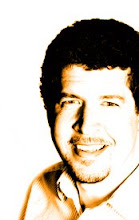What that means is that you must be as competitive as you can possibly be in order to get hired. You must be smart in your research, how you organize yourself, how you network and communicate, how you interview, and how you build your support system.
The most successful job-seekers, those who get an offer for the job they want, have practiced and drilled and mastered the basic, building-block skills. They have crafted their own personal marketing statements, they can introduce themselves and initiate effective networking conversations, they can tailor a resume and cover letter for target companies, they can present themselves professionally in an interview, and they know how to negotiate an offer. Hiring managers look not only for competence, but also for polished communication and confidence.
These are skills that can be practiced in classrooms and workshops, and with mentors, counselors, and peers. There is no substitute for practice! The most important things to practice include: what you say about yourself; how you describe what you’re looking for; how you ask others to help you; what you say in dialogue with an interviewer; and how you follow up after the interview.
Here is some good news. There’s a whole new way for you to prepare to compete effectively for the job you want. Lisa Correu and I have created AfterSchool Career Workshops, which kick off next week. Each workshop is a self-contained, one-day session which covers all the bases and equips you to leave with a game plan and all the tactics you need to make it happen. We’ve had lots of terrific support in putting this together, including our logo design courtesy of Springboard Creative (thanks, Kevin!), and we’ve poured our collective experience as recruiters and hiring managers into giving you intensive coaching and guidance.
Our first sessions will take place next week, on December 9 and December 12 in Kansas City, MO. If you’d like to be our guest as we bring this training to the market, we’d like to give you an opportunity to attend free! (We will be charging $125+ after January 1st.) In return, we’ll ask you to provide us some video feedback on the content during the final half hour.
If you’re interested in attending free (this is a one-time-only opportunity), visit our website and email us through the Contact Us button before Monday, December 7. While you’re there, be sure to read the list of everything you’ll learn, check out our blog (tips galore), and help yourself to the free downloads.
Let’s get new graduates hired!




